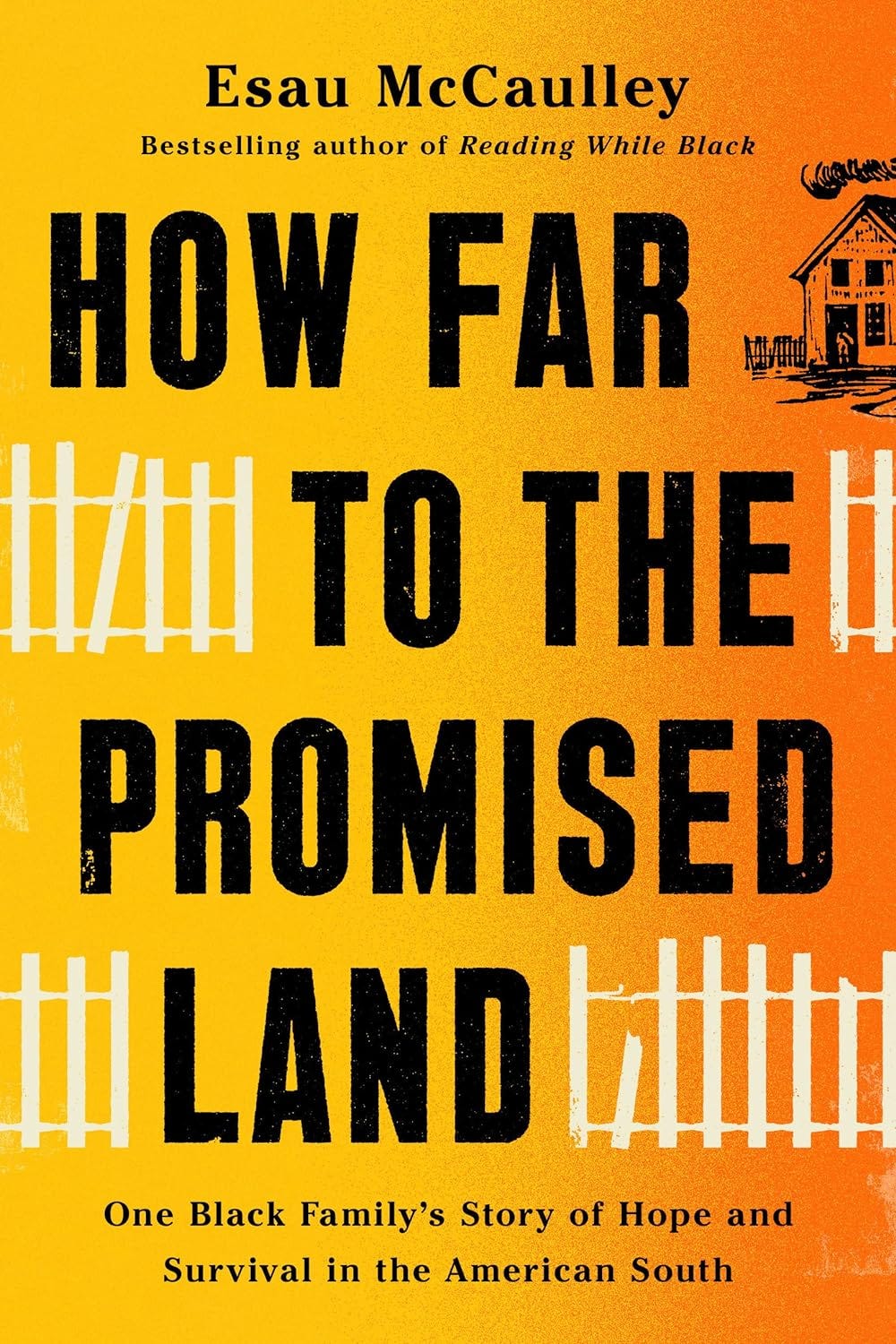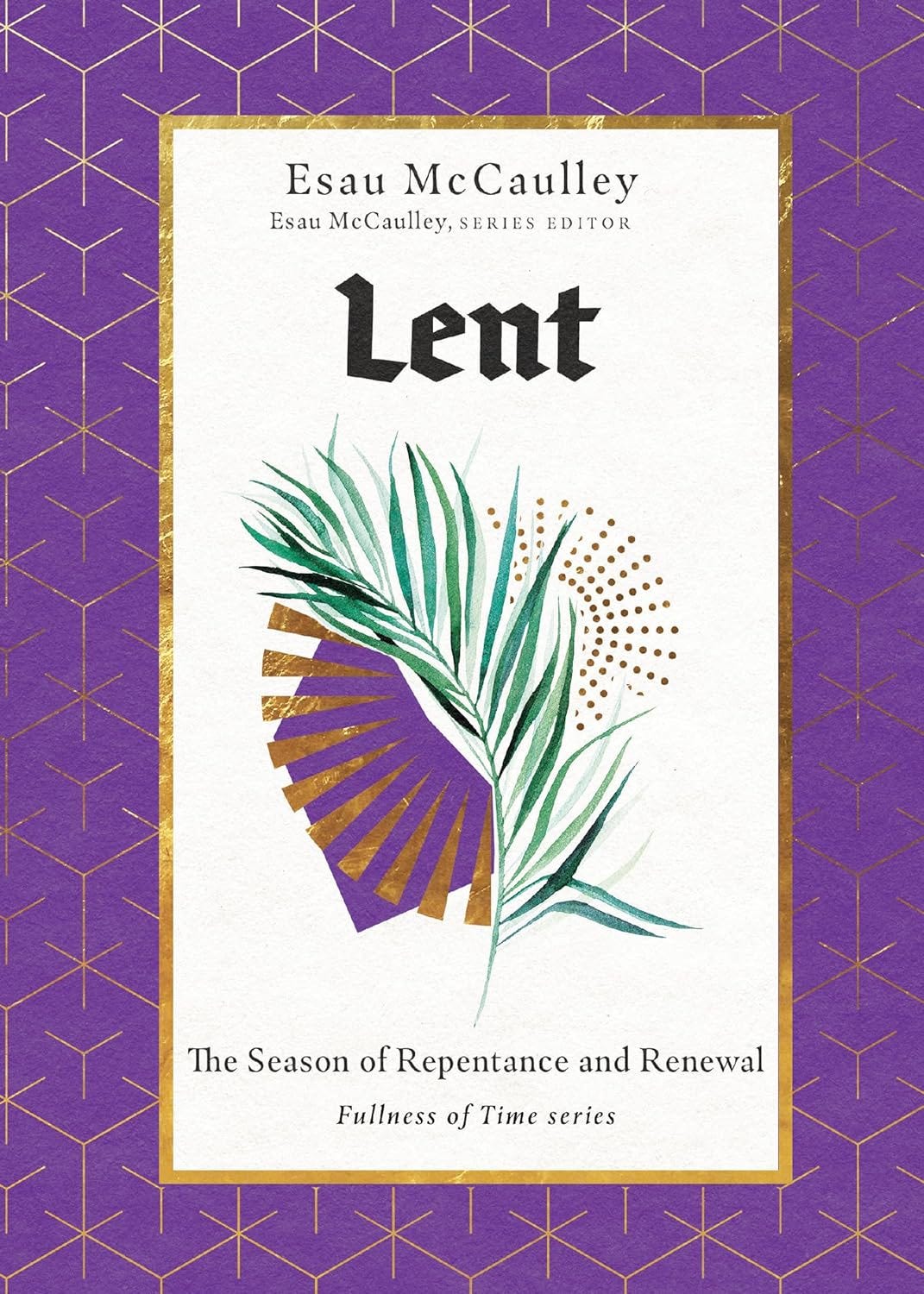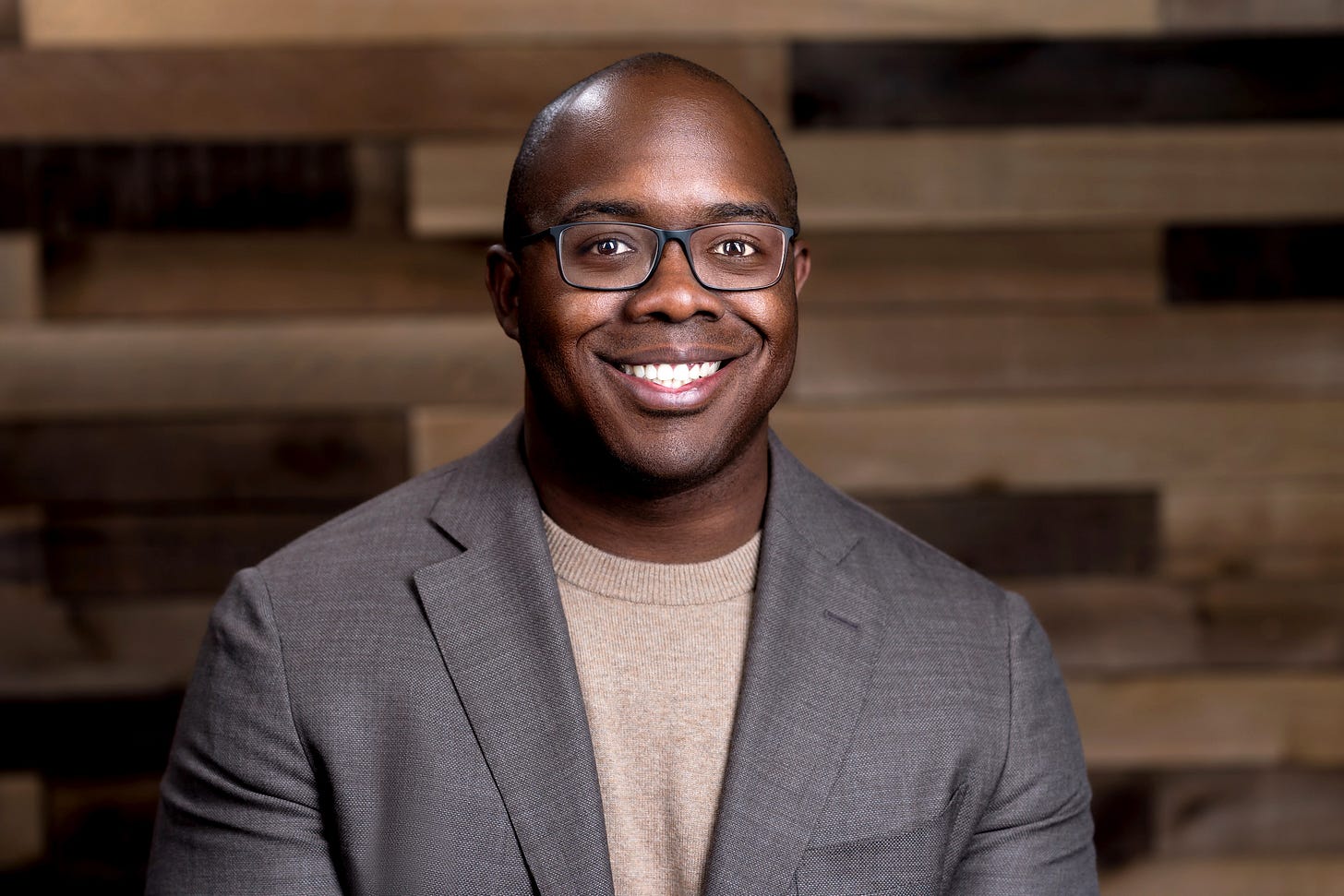‘I Talk to God in Public’
Public Theologian Esau McCaulley Discusses Education, Book Banning, and Writing about Faith for a Mainstream Audience
One reason I decided on my classic memoir goal for 2024 was reading several excellent memoirs and biographies last year. One of those? Esau McCaulley’s How Far to the Promised Land. I had followed McCaulley’s work for a while by then and raced to buy, read, and review it the minute it came out. I was not disappointed; you can read my review here.
McCaulley is the Jonathan Blanchard Associate Professor of New Testament and Public Theology at Wheaton College. Along with How Far to the Promised Land, he’s the author of several books, including Reading While Black; Sharing in the Son’s Inheritance; Lent: The Season of Repentance and Renewal; and a forthcoming book from Yale University Press, How to Read the Book that Sets You Free: The Bible, Slavery, and Abolition.
A sought-after lecturer, McCaulley was a featured speaker at the Aspen Ideas Festival in 2022. The Alabama State Senate has recognized him with a special commendation “for his influential work and achievements in the faith community.” Plus, he’s a regular contributor at the New York Times and has written for The Atlantic, The Washington Post, and Christianity Today.
I was excited to talk with McCaulley about education, censorship, and writing about faith for a mainstream audience.
One of the most fascinating aspects of your memoir was the decision to retrace the family tree and include your ancestors. You explain your rationale for that in the book, and it resonated with me. Does that viewpoint affect how you read other memoirs and autobiographies, and if so, how?
The decision to include my family across time was intentional because I really want to push back on the hero’s journey form of story telling and give dignity to people whose story shaped how I view the world.
We have a fundamentally broken understanding of the value that is linked to material success. I think that all good memoirs look around and let you see the world in which the author lives and breathes to feel the place. I have always been drawn to books that do that.

In your book you discuss the absence of your father. You’ve also talked about finding father figures in your community—your high-school coach, men from your church, and so on. I wonder what role literature can play in that sort of ad hoc mentoring and teaching?
No book can replace the role that real friends and family members play in our lives, but books can change or inspire us. They can depict traits that we are drawn to emulate. They can help us imagine different futures when hope is in short supply.
“Books can change or inspire us. They can depict traits that we are drawn to emulate. They can help us imagine different futures when hope is in short supply.”
—Esau McCaulley
One topic you’ve addressed in the past is how our teachers can shape us. What do you see as the responsibility of teachers in mentoring their students?
The role of the teacher and the writer are similar. Both are hoping that by revealing something of themselves and their way of thinking, it might spur students on in their own self-discovery. There are some ideas and values that I want to pass along to my students, but I am not creating clones. I want to aid them in becoming the person God made them to be.
Speaking as a college professor, what concerns you most about academia today? What are we doing wrong?
That’s a matter for a book not a individual question. It is hard to speak to the academy as a whole. There are elements of light and places of real darkness. One thing I will say is that we need to give students grace. Adulthood is hard and if we are honest we’re all stumbling around a bit.
One topic to which I regularly return is book banning and how a pluralistic society such as ours handles disagreements over ideas. You’ve talked before about the challenge of agreeing on required high-school reading. This seems more contentious today than ever before. How should we be thinking about this issue?
Book banning is easier to make sweeping statements about and harder to be clear on particulars. We all agree that some things are inappropriate for children depending on their age. We all also agree that students need to hear from a variety of perspectives even those with whom we disagree. The real question is developing criteria that is mutually agreeable to all. This probably requires more trust than we have right now.
“The real question is developing criteria that is mutually agreeable to all. This probably requires more trust than we have right now.”
—Esau McCaulley
What are five books—fiction or nonfiction—that help explain our current world?
I am not sure that I completely understand our current world. We live in a multitude of cultures bouncing off one another, and I’m not sure five books could explain them all. Books that have stayed with me: Ralph Ellison’s Invisible Man, J.R.R. Tolkien’s The Lord of the Rings, Dostoevsky’s Crime and Punishment, the Collected Works of Flannery O’Connor, and of course the Bible.

What books have been particularly helpful in shaping your worldview?
I am a Christian so I would say the Bible has been formative alongside the Anglican Book of Common Prayer, the sermons and speeches of Martin Luther King Jr., soul music, hip hop music, and gospel. I can’t sing or play anything, but music has been formative in my life.
A large part of your public presence involves your role as a public theologian. Reflexively, when I think of that role I tend to picture someone from a prior time—say, Reinhold Niebuhr. For you, what does that role entail today, and how do you perform it in a country as religiously diverse and politically contentious as ours?
There is this lyric from Chance the Rapper that says, “I talk to God in public” that pretty much sums up what I think I am doing. I try to be honest about my own doubts and questions and the ultimate confidence I have in God’s goodness. I try to be descriptive rather than prescriptive. Since many of my readers are not Christian, I try to show them how my faith impacts how I see the world.
Mostly, I try to be myself. In my life, it is not all God all the time. Sometimes I am just watching sports or doing ordinary things. I try to include that ordinariness in my writing. Some of my opinion pieces are not directly religious at all, even though my faith might inform how I engage a topic.

Final question: You can invite any three authors for a lengthy meal. Neither time period nor language is an obstacle. Who do you pick, why, and how does the conversation go?
Answer: Richard Wright, James Baldwin, Toni Morrison, Zora Neal Hurston, Martin Luther King Jr., Langston Hughes (first meal).
Tolkien, C.S. Lewis, Joseph Ratzinger, and Flannery O’Connor (second meal).
I would mostly be listening.
Thanks for reading. Please hit the ❤️ icon if you enjoyed the piece. And while you’re at it, spread the love and share it with a friend!
If you’re not a subscriber, take care of that now. When the next free review or essay hits your inbox, you’ll be glad you did.
Don’t miss my review of McCaulley’s memoir, How Far to the Promised Land.




Terrific brief interview. I haven’t heard of Esau McCaulley - so I’m glad to be introduced to him. Can’t wait to pick up this memoir, I’m very intrigued. He’s not “long-winded;” he seems to get straight to the point; and evidences some light-heartedness, some humility, and an admirable leavening of his faith into every aspect of his life - seamlessly. That’s the kind of person I want to be influenced by. Thank you.
childhood is not that easy either, if one has a good memory.
...thank you for the interesting read